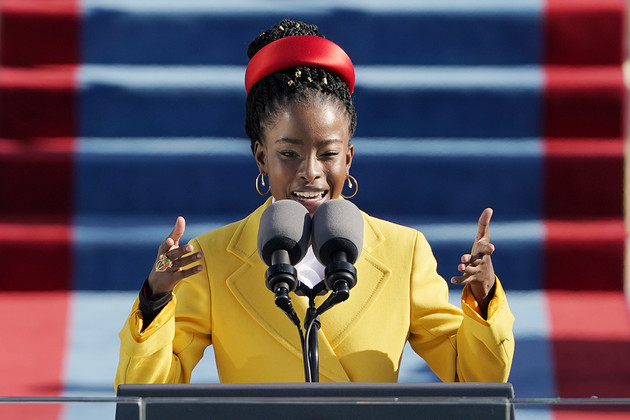
Introduction:
The decision made by a Florida school to restrict access to a poem “The Hill We Climb” performed at President Joe Biden’s inauguration has sparked a contentious debate surrounding book bans within the state and the increasing prevalence of such practices across the country. These bans, often initiated by a concerned parent, have resulted in the removal of books such as Toni Morrison’s “The Bluest Eye” and Stephen Chbosky’s “The Perks of Being a Wallflower.” Critics argue that these restrictions have far-reaching consequences, excluding entire groups and themes from students’ educational experiences, particularly those centered around people of color and the LGBTQ community. A recent incident involving Amanda Gorman’s poem, “The Hill We Climb,” serves as a striking example of the worrisome implications of these bans.
The Controversial Decision:
Recently, a Miami-Dade County school made the decision to remove Amanda Gorman’s poem from its elementary school collection following a complaint from a parent, as reported by the Miami Herald. Gorman, the national youth poet laureate at the time, composed the poem shortly after the January 6, 2021, Capitol insurrection, offering an optimistic vision for the nation’s future and its potential to bridge societal divisions. The parent who filed the complaint raised concerns about the poem, along with several other books addressing Black history, alleging the presence of “hate messages.” Consequently, the poem remains accessible to middle school students but is no longer available to younger readers. This decision raises alarm due to the poem’s powerful message and the valuable historical context it provides.
The Wider Context of Book Bans:
The incident surrounding Gorman’s poem is not an isolated event but rather part of a larger trend involving book bans supported by Republican lawmakers in various states. In Florida, legislation was passed last year that limited teachings on race and LGBTQ rights, resulting in the removal of specific books from school shelves. Similar restrictions have emerged in states such as Texas, Missouri, Utah, and South Carolina. According to a report from the American Library Association, the number of attempts to ban books in schools and public libraries reached a record high in 2022, nearly double the challenges observed in 2021.
The Motivation Behind Book Bans:
Experts argue that book bans are being utilized by Republican lawmakers to advance an ideologically biased version of American culture, society, and history. Many of these bans specifically target educational materials addressing systemic racism, LGBTQ identity, and the contributions of marginalized groups to American society. By limiting the range of ideas presented to students, these bans restrict opportunities for diverse representation in literature, thereby narrowing students’ understanding of the world.
Preserving Free Thought and Free Speech:
In response to the Florida school’s decision, Amanda Gorman expressed her concerns about unnecessary book bans through a Facebook post. Gorman asserted that depriving children of the chance to find their voices in literature constitutes a violation of their right to free thought and free speech. Her sentiments resonate with those who believe that book bans impede intellectual growth and hinder the development of critical thinking skills.
Conclusion:
The recent decision to restrict access to Amanda Gorman’s poem in a Florida school has ignited a broader conversation about the concerning rise of book bans nationwide. These bans, often driven by political motivations, limit students’ exposure to diverse perspectives and narratives. By suppressing literature that explores important themes related to race, identity, and marginalized communities, these bans hinder students’ access to a comprehensive education. It is crucial to resist these book bans and advocate for the freedom of thought and expression that literature provides, enabling students to cultivate empathy, understanding, and a broader worldview.
